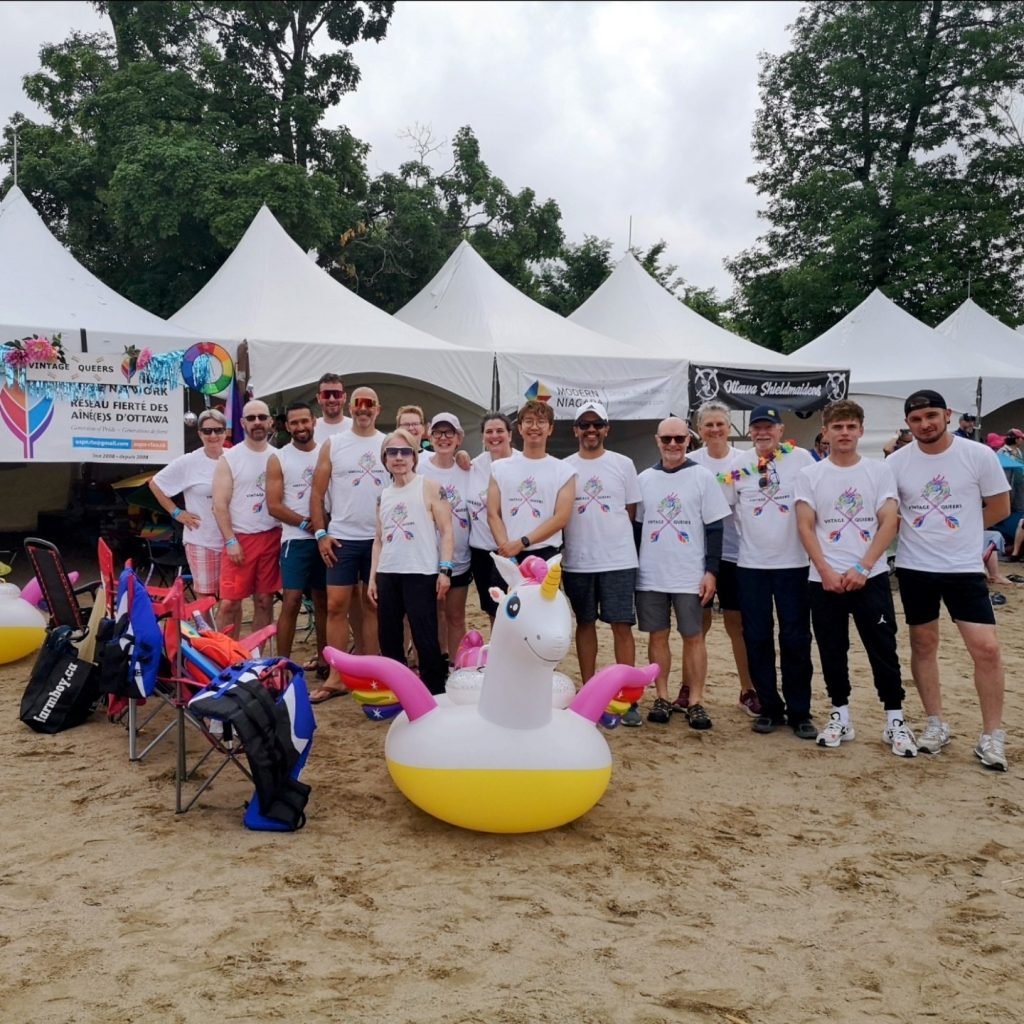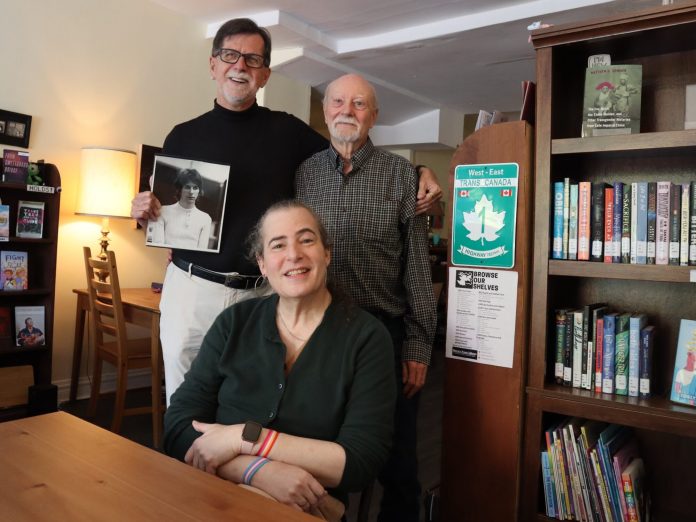It’s a Saturday afternoon and a group of older adults are gathering at the Good Companions Seniors Centre. On the agenda for the day is a coffee catchup, crafts with sass, group meditation, and pickleball. Each attendee has one thing in common: they are all part of the LGBTQ2S+ community.
The Ottawa Seniors Pride Network was founded 17 years ago to provide a sense of connection to gay, lesbian and trans seniors who were feeling a sense of loneliness after being on the frontlines of LGBTQ2S+ advocacy.
“Originally, we were pretty small, and then we had a conference where we had about 70 people come out. A lot of people said they were interested in end of life care, social stuff like dances, and out of that formed these committees,” said founding member George Hartsgrove. ”Now we have a health and long-term care committee and an interim board because we’ve decided to incorporate after receiving a grant which is looking at governance and strategic planning for moving forward.”
The social calendar has no shortage of activities. Older & Bolder is a monthly drop-in discussion group for age 50+ Queer women. Then there is the widely popular five-pin bowling at the West Park Lanes in Wellington West where Hartsgrove says the seniors slay. Dances are also held at the Good Companions which easily attracts 150 people each time. There are movie nights too and soirées for holidays.
Bonding over shared trauma
One could say it’s time these seniors get to enjoy living after a life of fear, stigma and shame. Each member grew up in a time when it wasn’t widely accepted to be gay.
People lived in the closet for fear of disapproval or punishment. An estimated 9,000 Canadians working for the civil service or RCMP were fired because of their sexual preferences between the 1950s and 1990s. Then there was gay bashing. Those who didn’t take part were suspected of being homosexual. Police took part in the violence too.
One Seniors Pride Network member knows this all too well. Today Hugh Nelson is out and proud. He’s loud, vibrant, and playful. But it wasn’t always that way. Nelson brought a photo of his teenage self to our interview. It was taken in an era where he was almost killed because of his attraction to other men.
“They were driving me out of town to kill me. We escaped from the car, we ran down Laurier Avenue in Hull, and we ran into the manager’s office of the La Terrace bar. People chased us all the way there,” recounted Nelson.
It was the year 1971 or 1972 and the flamboyant Nelson was left beaten and bruised. The scars were evident, but one of the aspects that shocked him the most was the police response — or lack thereof.
”The bouncer took us by the collar and walked us out. There was a policeman, a taxi and the car we escaped from. There were three people sitting on the porch who beat us up. I told the policeman it was them, and he said ‘get in the taxi and go back to where you belong.’ That was the fear and distrust in things we grew up with,” said Nelson.
The wounds still run deep today but Nelson said he feels no shame.
“I had wonderful experiences. I had a wonderful work life. I had a very supportive partner of 45 years. But there was always this fear in the back of your mind combined with shame. People had to be strong in order to appear anywhere,” he said.

Eva Rosenberg joined the board after moving to the National Capital Region in 2018 from the United States. She grew up in an area where LGBTQ2S+ rights — especially for transgender individuals — are at risk.
Constantly being in an unsupportive environment meant emotions had to be deeply repressed.
“I’m a lesbian. I had experienced a whole bunch of things, like gay guys would make passes and I always wondered why. All sorts of women thought I was gay,” said Rosenberg. “At my 25th high school reunion I was slammed with a homophobic comment. I was married with two kids – the whole bit – yet still received it. I cross-dressed and hid from the age of five. I hid from everyone because it would have meant commitment, psychological torture for the most part, and if it came out, my life would have been ruined.”
The marriage soon fell apart and Rosenberg moved to Ottawa where she discovered Gender Quest at Kind Space, an organization based downtown which houses drop-ins, hosts events, and offers resources for the LGBTQ2S+ community. Through a support group and therapy, Rosenberg quickly realized she was trans and began the journey to live as her authentic self.
“I had this feeling of calm, that everything in the world was right,” said Rosenberg. ”I came out to my kids a year after living here. They said ‘let your flag fly,’ this is Canada. But it took me a couple of years. In the fall of 2019 I started medical intervention.”
Rosenberg said the entirety of her Jewish Orthodox family was accepting. In fact, one of her kids also came out as non-binary.
It’s stories like this that explain why the Ottawa Seniors Pride Network exists today. Together, they break down the shame and fear their upbringings caused. It’s also a way for members to reconnect with one another after meeting in secret all those years ago.
“We didn’t have [gay dating app] Grindr back then, but we did have a heck of a lot of clubs. We had Club Mustache and we ended up with 500 members in the region. We ran jamborees and dances in the clubs,” said Nelson.
